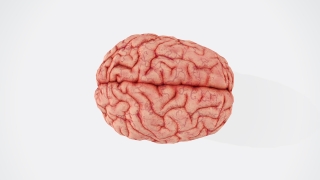Large-scale Research for Faster and Better Stroke Treatment
In the coming years, the number of people affected by a stroke will increase explosively to more than 600,000 people. As a national stroke consortium, CONTRAST is committed to improving care for these patients.
This is a follow-up financing of the CONTRAST consortium from the Impulse program. The Heart Foundation and the Brain Foundation are making this follow-up study possible, in which a large number of healthcare institutions are involved, to increase the chance of a good recovery after a cerebral infarction or cerebral hemorrhage. The biggest benefit lies in starting the right treatment as soon as possible.
Every second counts
It all starts in the ambulance, where the cause of a stroke is currently difficult to determine. By using new technology, it should soon be possible to make the correct diagnosis in the ambulance and transport the patient directly to the most suitable treatment hospital. This concerns, for example, a smart swimming cap equipped with electrodes with which patients can be diagnosed in the ambulance if there is a suspicion of a stroke.
Improving rehabilitation and chronic care
Even after the acute treatment of a stroke, care and attention are still needed for the people who survive it. In previous studies of CONTRAST, radiologists, neurologists and neurosurgeons worked closely together. This has already led to improvements in acute post-stroke treatments. Rehabilitation doctors will also join in this follow-up phase.
It is the first time in the Netherlands that all these disciplines work together in the field of stroke. The aim is to ensure that the different types of care merge seamlessly, so problems that arise later in life can also can be treated. In the study, a large group of patients will be followed for a long time.
6000 patients in clinical studies
In addition, six large clinical trials will start in which one or more new treatments will be tested. In total, more than 6,000 patients will participate in the study. The various studies are financed with 4 million euros by the Heart Foundation and Brain Foundation. The consortium is led by Professor of Neuroradiology Aad van der Lugt (Erasmus MC Rotterdam) and Professor of Acute Neurology Yvo Roos (Amsterdam UMC).
Turning the tide together
Research into the acute treatment of strokes is one of the top priorities of the Heart Foundation. Many people with a stroke arrive at the hospital too late. “As everyone knows or can imagine, our heart, blood vessels and brain are strongly connected,” says Hans Snijder, director of the Dutch Heart Foundation. “I am extremely pleased that we have been able to set up this important research in which many parties work together with the Netherlands Brain Foundation. Doing nothing is not an option, we have to turn the tide so that the quality of life for these patients improves.”
A unique combination
Minimizing the burden of disease for everyone who has to live with the consequences of a stroke is of great importance to the Netherlands Brain Foundation. Quality of life and continuing to participate in society are high on the agenda. Thanks to the collaboration between the Brain Foundation and the Heart Foundation, care for people who have had a stroke, does not end after acute treatment. “Because the Brain Foundation and the Heart Foundation are joining forces, we are making the unique collaboration between acute care and chronic care possible,” says Merel Heimens Visser, director of the Brain Foundation. “In this way, we hope to close the 'gap' between these two disciplines and to make the entire care process feel more like one whole for the patient.”
Source: Dutch CardioVascular Alliance

